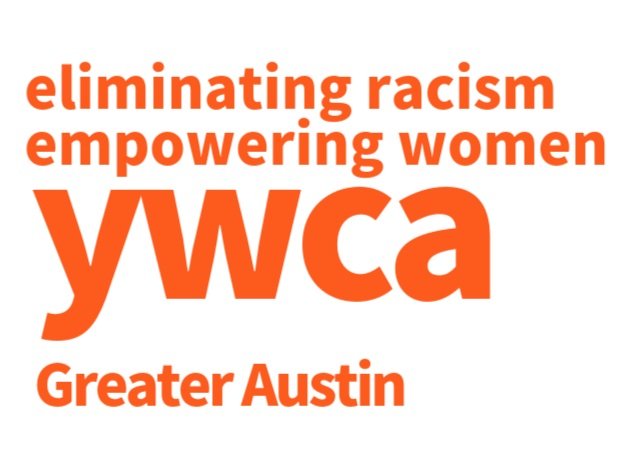Telehealth Consent Form
Please read the following terms and then complete the form below.
What is tele-mental health?
Tele-mental health is the practice of delivering mental health services via technology assisted media or other electronic means between a service provider and a client who are located in two different locations. Technology tools may include videoconferencing, email, text messaging, electronic health portals, specialized mobile apps, and others. To connect for tele-mental health services, clients need access to the internet through a computer or smart phone and/or through telephone.
YWCA utilizes an end to end encryption and HIPPA compliant Zoom account to offer direct services such as therapy, care coordination, and training. Clients have access to their electronic health portal to schedule appointments, complete forms, and/or make payments. To facilitate this process, once a client is scheduled, the service provider will contact them to help them navigate and connect to zoom and their portal.
Benefits and risks of tele-mental health
Tele-mental health has both benefits and risks, which will be monitored throughout the course of services.
Benefits may include:
receive services at times or places where the service may not otherwise be available
receive services in a fashion that may be more convenient
receive services when you are unable to travel to an office
Risks may include:
Unstable internet connections and/or technical hardware failures
Interruptions to your privacy at your location (intentional or unexpected) and/or breaches by unauthorized persons
Limited ability to respond to emergencies and crisis
Assessing if tele-mental health is a fit for you
Research has validated the efficacy of tele-mental health services. However, if you determine that tele-mental health is not a good fit for you and/or it is not a good time to utilize this modality you can request in-person services at any point. Please let your service provider know if this is a concern to problem solve, change modality, or pause services. You are welcome to return to services at a later date if more appropriate.
Preparing your environment for tele-mental health services
Doing sessions from a remote location leads to a possible breach of confidentiality. If you are in an unsafe relationship or situation and you believe tele-mental health may endanger you, please do not access your therapy session at this time. We will understand the need to reschedule if you were concerned about your safety.
In order to prepare:
Test equipment for your session.
Identify a suitable room for sessions that is quiet and clean with a plain backdrop.
Ensure that your space is private for confidentiality.
Hang a “do not disturb” sign on the door to avoid interruptions.
Be sure to eliminate as many distractors as possible (ex. Ceiling fans overhead, pictures behind you, pets, outside noise, etc.).
YWCA service providers will follow best-practices and legal standards to protect your confidentiality including preparing a confidential space, suitable technology, and elimination of distractors. YWCA providers will ask your location and nature of privacy at the beginning of each session in case of an emergency.
Our communication plan re: technology failures and emergencies and mental health crisis
In preparation for services, we will develop a plan in case of technology failures and a plan for responding to emergencies and mental health crisis. At the beginning of each session, the service provider will ask to know your location in case of an emergency and a phone number at which to reach you in case of technology failures. They will also ask for a contact who we may be able to contact in a emergency.
Technology Failures:
If we have difficulty connecting for a session, please call 512-326-122 for assistance.
If we lose connection during a session, please try to reconnect through the same zoom link or if by phone, call 512-326-1222 to reconnect.
Contact between sessions should be limited to confirming or rescheduling appointments, payments, or other logistical concerns.
Emails you exchange with the provider especially anything sent through the portal is part of your health record. Please limit these to confirming, cancelling, or rescheduling.
Mental Health Crisis and emergencies:
In case of a mental health crisis we will also work together to develop a plan to keep you safe.
Please list an emergency contact that we may communicate with about your care during emergencies:
Recordings
YWCA does not record any sessions unless it is discussed with you previously. If we do record, videos are kept confidential and would be used for training purposes only and used with internal supervisors. Please do not record audio or video sessions of your sessions. Making recordings can quickly and easily compromise your privacy.
Our Agreement
I hereby consent to
participate in tele-mental health services though the YWCA Greater Austin. I understand that all information shared through tele-mental health services and electronic records follow best-practices, as required by law, and as delineated in the YWCA Working Agreement. I understand that the privacy laws that protect the confidentiality of my protected health information (PHI) also apply to tele-mental health.
I have read, or have had read to me, the information provided above and discussed it with my service provider. I understand the information contained in this form and all of my questions have been answered to my satisfaction. I understand that I have the right to withdraw consent at any time without affecting my right to future services, or program benefits to which I would otherwise be entitled.
Thank you for completing your forms!
If you were not able to upload an ID, proof of income, or proof of address in your intake form, please select the Proof of ID, Income, and Address form OR complete the Self Declaration form.
